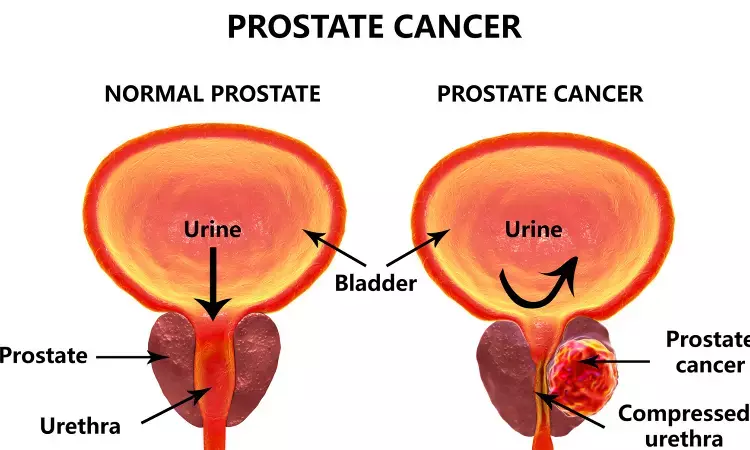- Home
- Medical news & Guidelines
- Anesthesiology
- Cardiology and CTVS
- Critical Care
- Dentistry
- Dermatology
- Diabetes and Endocrinology
- ENT
- Gastroenterology
- Medicine
- Nephrology
- Neurology
- Obstretics-Gynaecology
- Oncology
- Ophthalmology
- Orthopaedics
- Pediatrics-Neonatology
- Psychiatry
- Pulmonology
- Radiology
- Surgery
- Urology
- Laboratory Medicine
- Diet
- Nursing
- Paramedical
- Physiotherapy
- Health news
- Fact Check
- Bone Health Fact Check
- Brain Health Fact Check
- Cancer Related Fact Check
- Child Care Fact Check
- Dental and oral health fact check
- Diabetes and metabolic health fact check
- Diet and Nutrition Fact Check
- Eye and ENT Care Fact Check
- Fitness fact check
- Gut health fact check
- Heart health fact check
- Kidney health fact check
- Medical education fact check
- Men's health fact check
- Respiratory fact check
- Skin and hair care fact check
- Vaccine and Immunization fact check
- Women's health fact check
- AYUSH
- State News
- Andaman and Nicobar Islands
- Andhra Pradesh
- Arunachal Pradesh
- Assam
- Bihar
- Chandigarh
- Chattisgarh
- Dadra and Nagar Haveli
- Daman and Diu
- Delhi
- Goa
- Gujarat
- Haryana
- Himachal Pradesh
- Jammu & Kashmir
- Jharkhand
- Karnataka
- Kerala
- Ladakh
- Lakshadweep
- Madhya Pradesh
- Maharashtra
- Manipur
- Meghalaya
- Mizoram
- Nagaland
- Odisha
- Puducherry
- Punjab
- Rajasthan
- Sikkim
- Tamil Nadu
- Telangana
- Tripura
- Uttar Pradesh
- Uttrakhand
- West Bengal
- Medical Education
- Industry
Researchers look to licorice for promising treatment of prostate cancer

Licorice is more than a candy people either love or hate-it may play a role in preventing or treating certain types of cancer, according to researchers at the University of Illinois Chicago.
Gnanasekar Munirathinam and his research team are studying substances derived from the licorice plant Glycyrrhiza glabra to determine if they could be used to prevent or stop the growth of prostate cancer. Munirathinam is an associate professor in the department of biomedical sciences at the College of Medicine Rockford.
A research review into molecular insights of a licorice-derived substance called glycyrrhizin for preventing or treating cancer conducted by Dr. Munirathinam and student researchers suggests further research could lead to specific agents for clinical use.
The journal Pharmacological Research recently published the study titled "Oncopreventive and oncotherapeutic potential of licorice triterpenoid compound glycyrrhizin and its derivatives: Molecular insights."
"When we look at the research out there and our own data, it appears that glycyrrhizin and its derivative glycyrrhetinic acid have great potential as anti-inflammatory and anti-cancer agents," Munirathinam said. "More research is needed into exactly how these could best be used to develop therapies, but this appears to be a promising area of cancer research."
Should everyone go out and eat a bunch of licorice? Probably not, because it may affect blood pressure, interact with certain medications, and cause serious adverse effects, including death, when used excessively. An occasional sweet treat of licorice candy or tea may be better options until more studies can show how to best harness the plant's benefits.
"Very few clinical trials in humans have been conducted," Munirathinam said. "We hope our research on prostate cancer cells advances the science to the point where therapies can be translated to help prevent or even cure prostate and other types of cancer."
For further information, check out the following link:
Dr Kamal Kant Kohli-MBBS, DTCD- a chest specialist with more than 30 years of practice and a flair for writing clinical articles, Dr Kamal Kant Kohli joined Medical Dialogues as a Chief Editor of Medical News. Besides writing articles, as an editor, he proofreads and verifies all the medical content published on Medical Dialogues including those coming from journals, studies,medical conferences,guidelines etc. Email: drkohli@medicaldialogues.in. Contact no. 011-43720751


